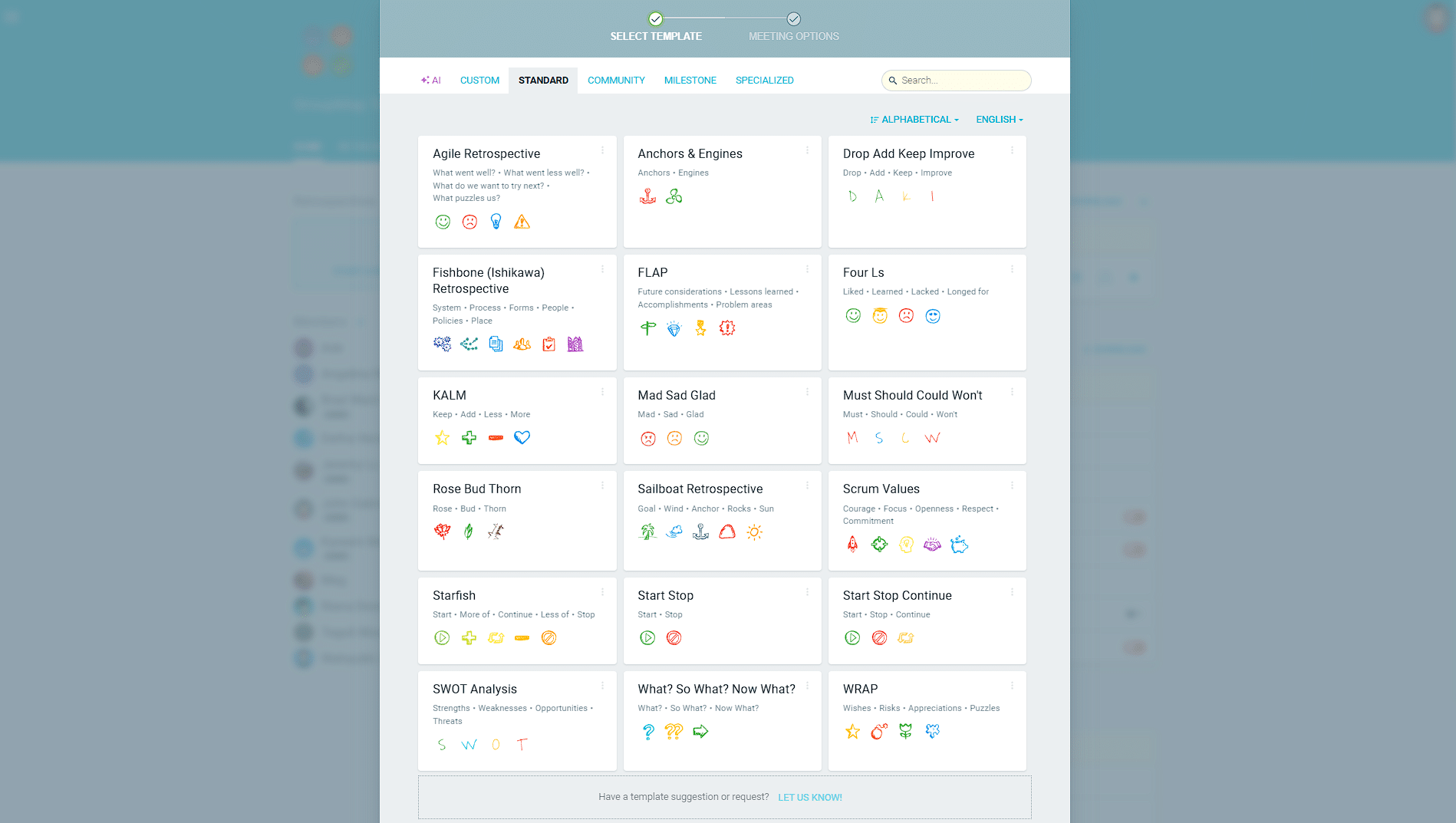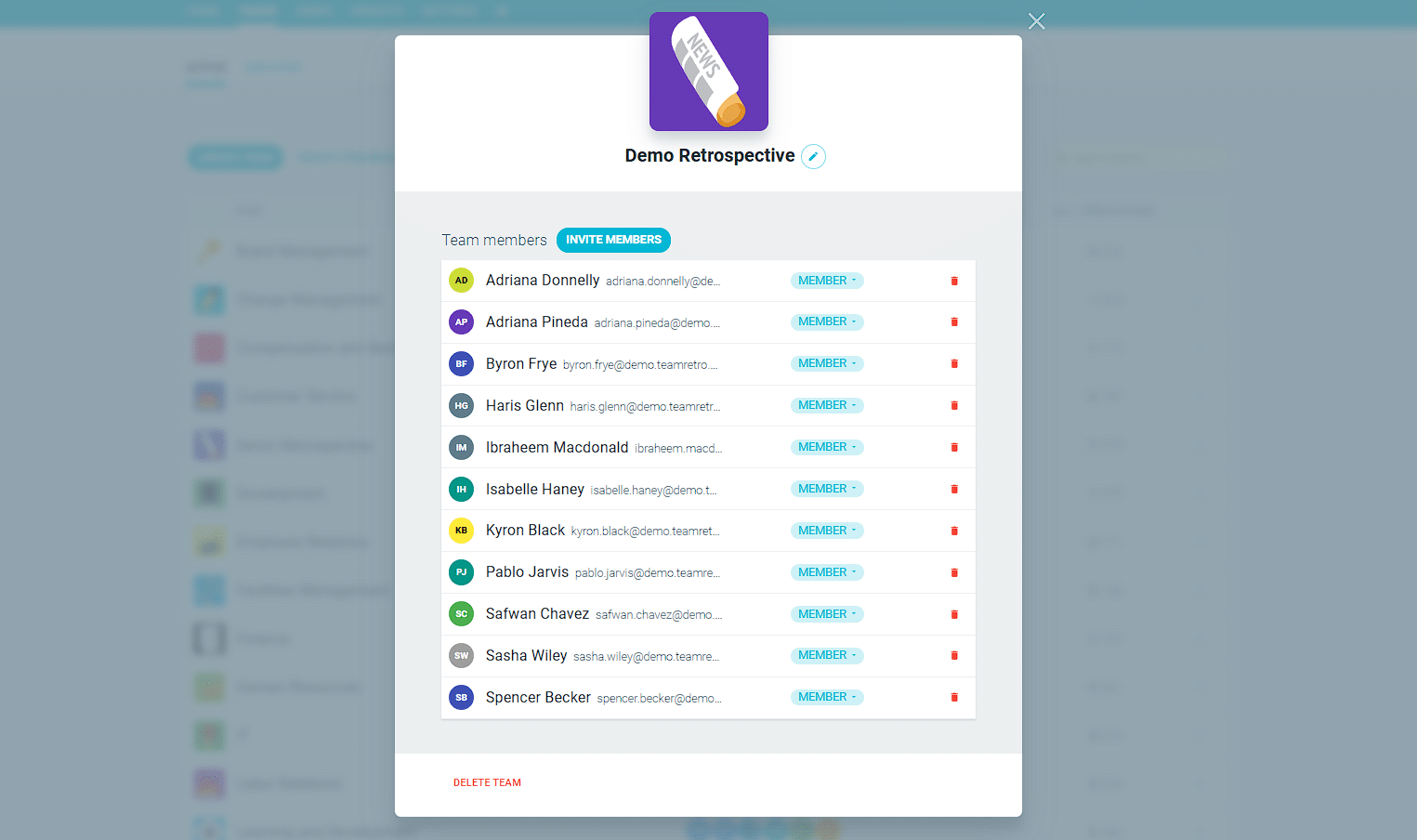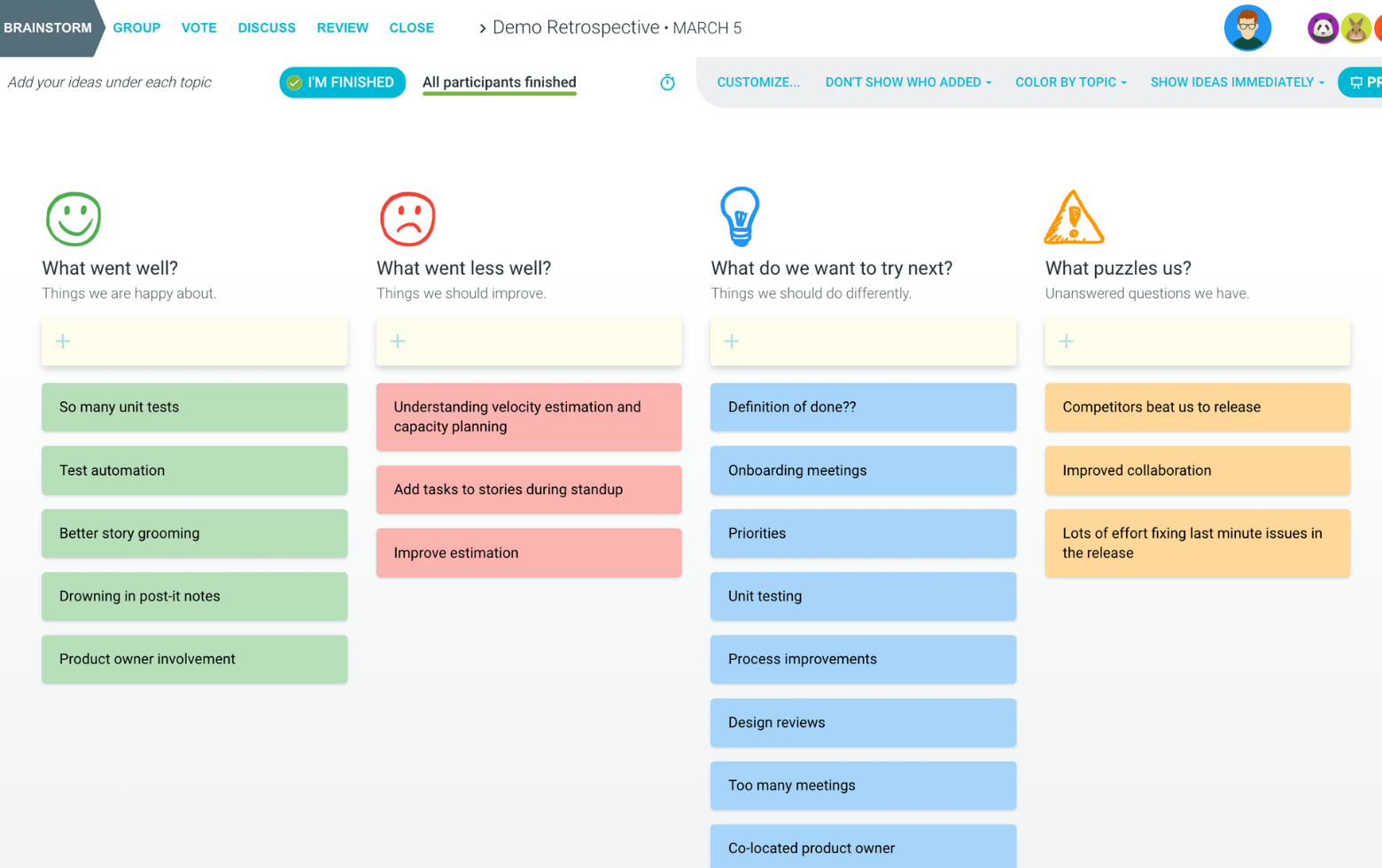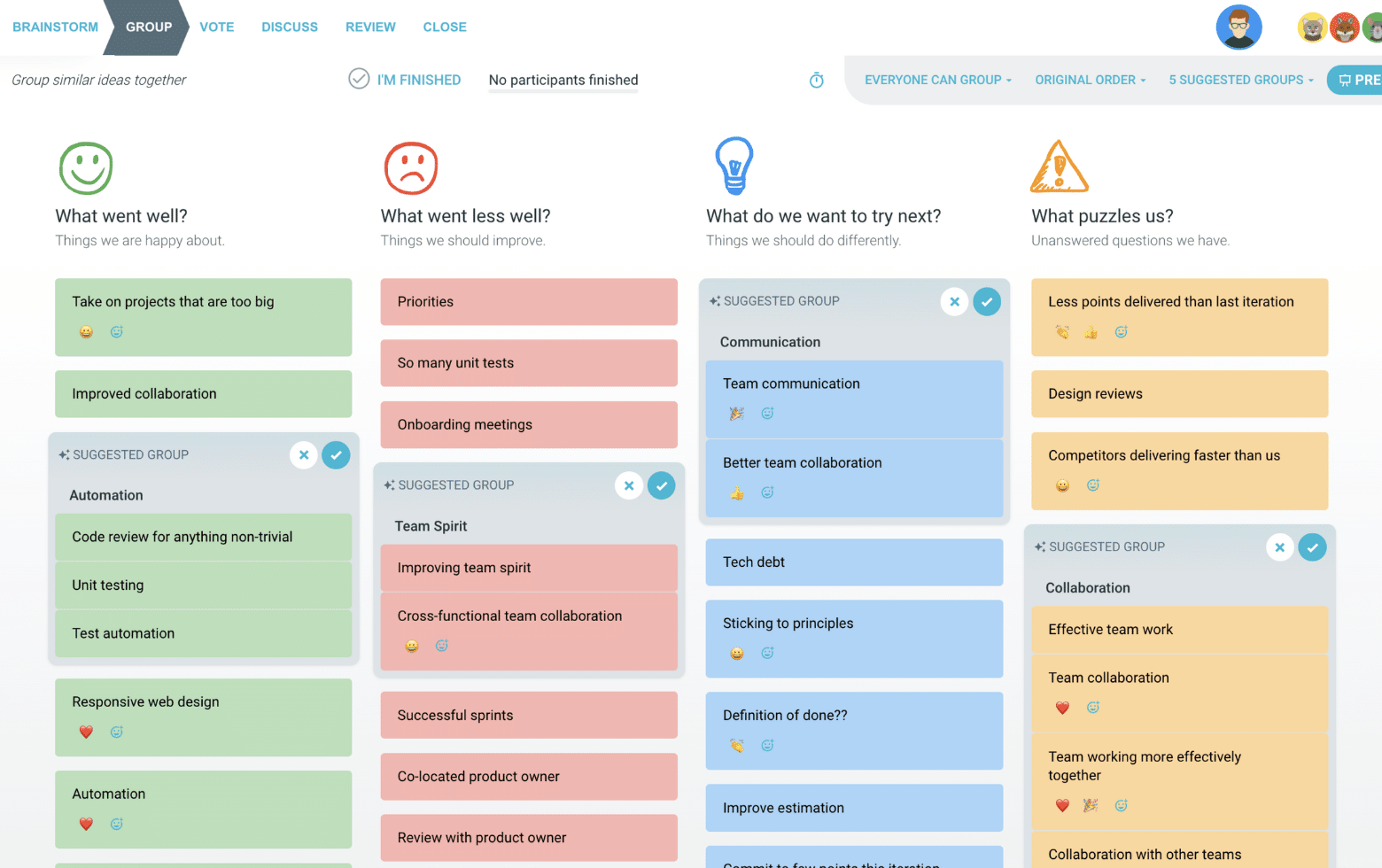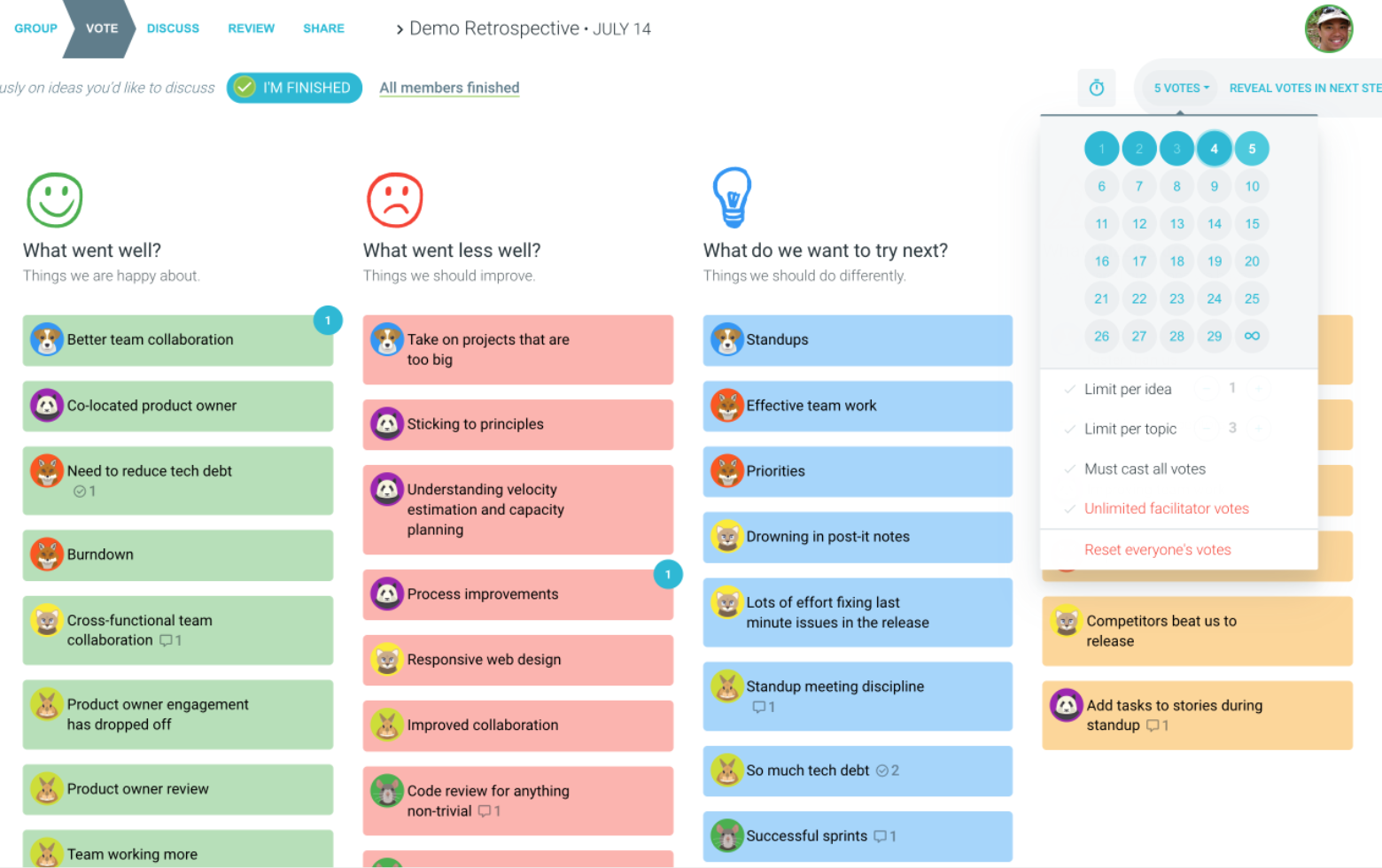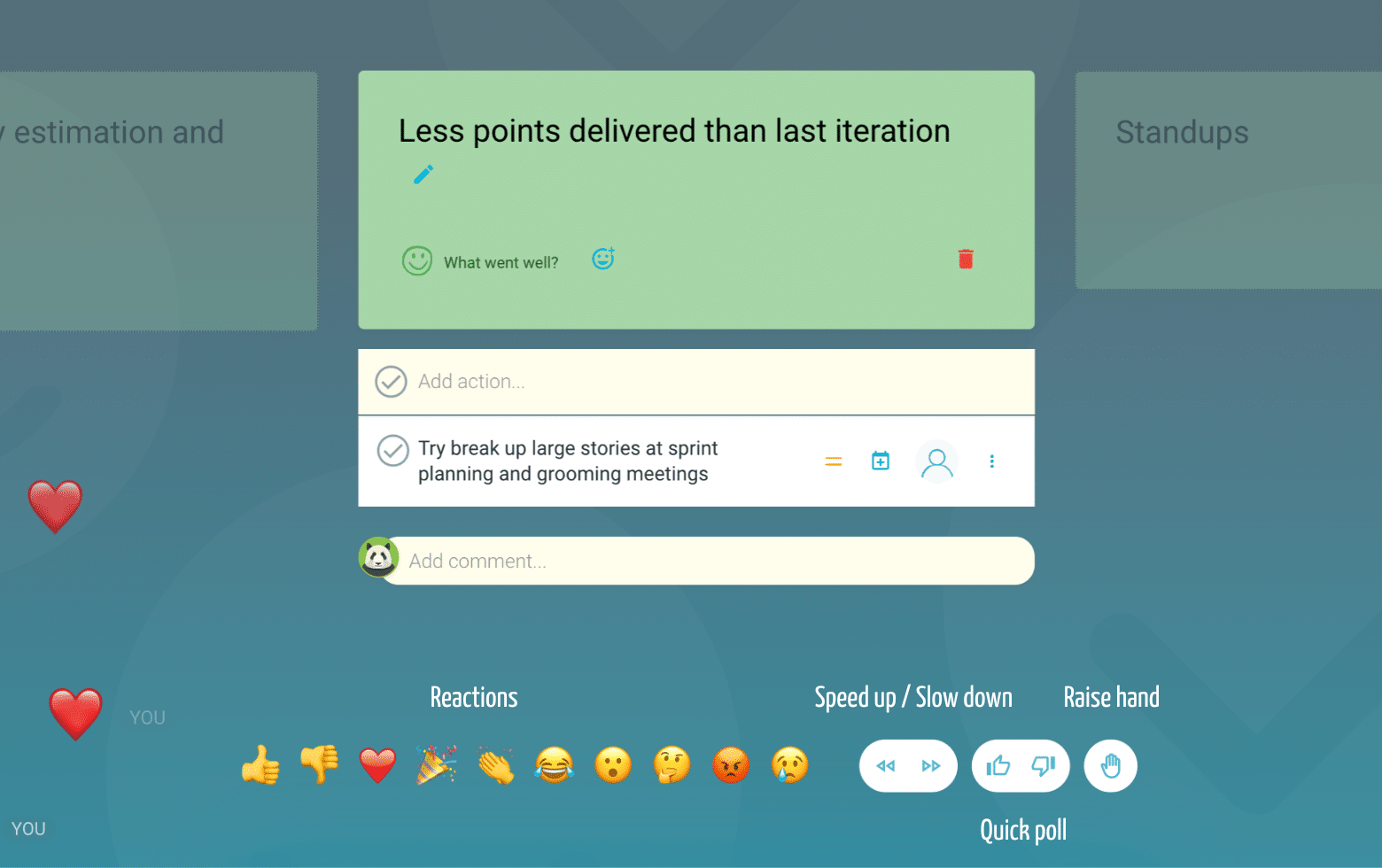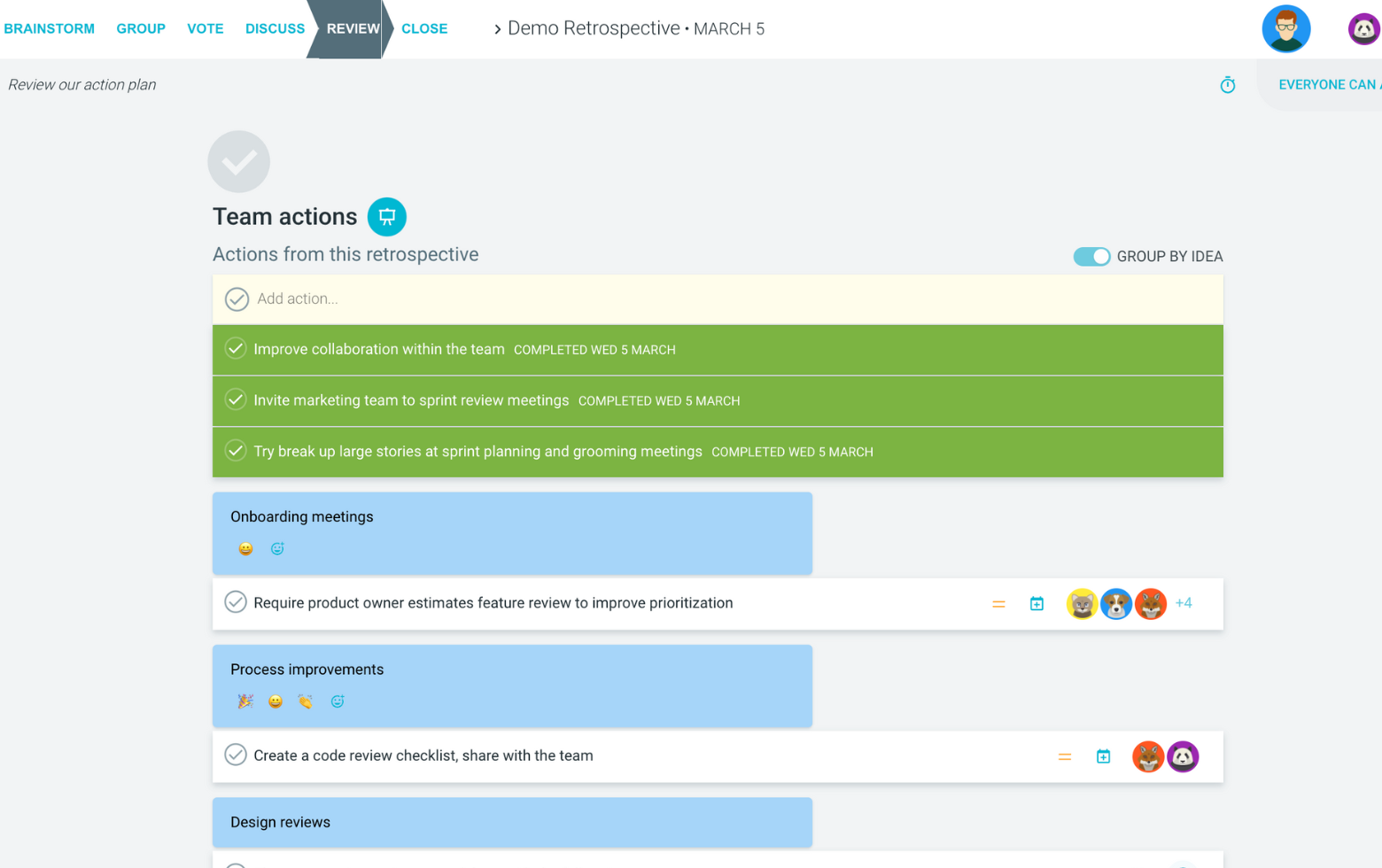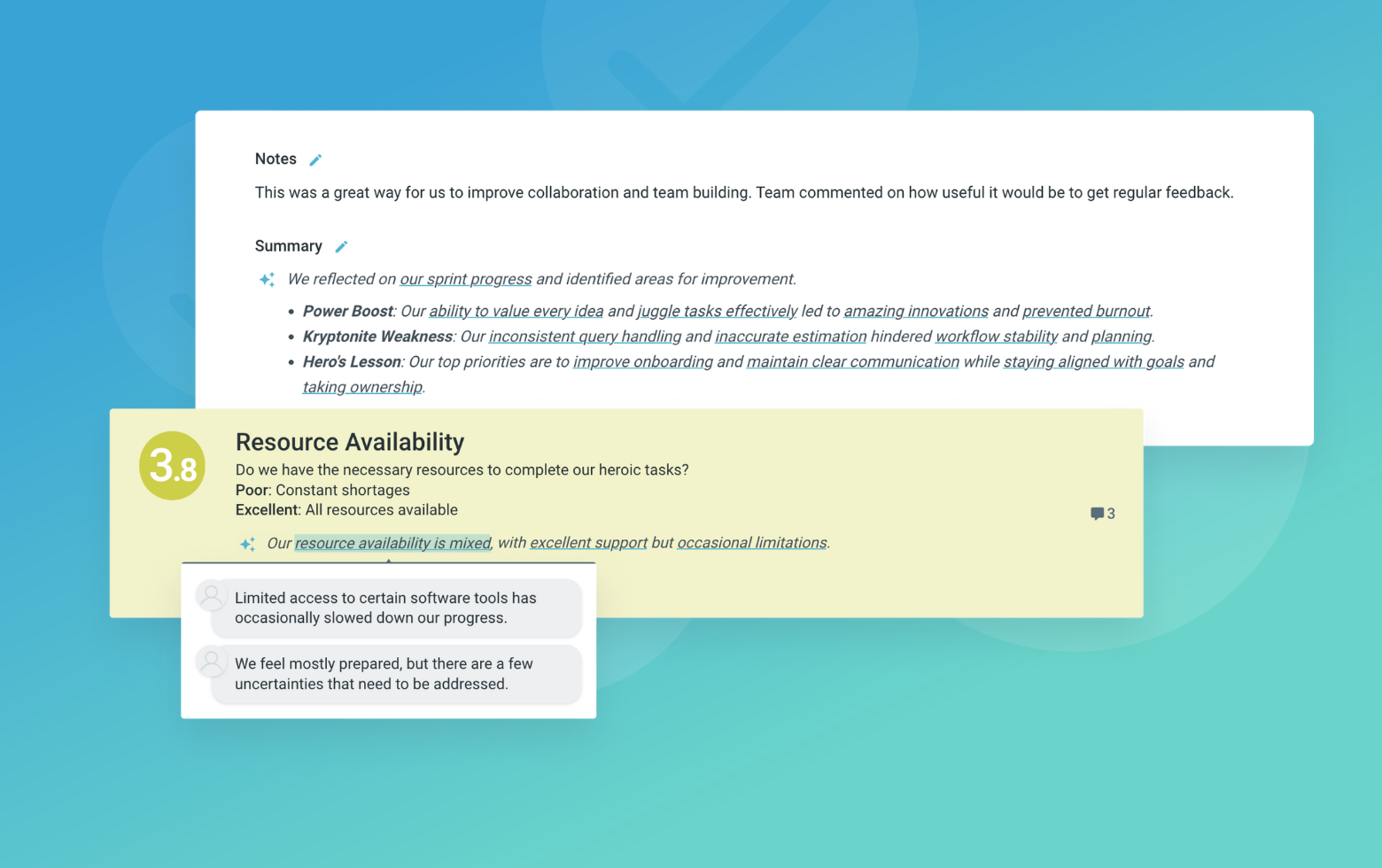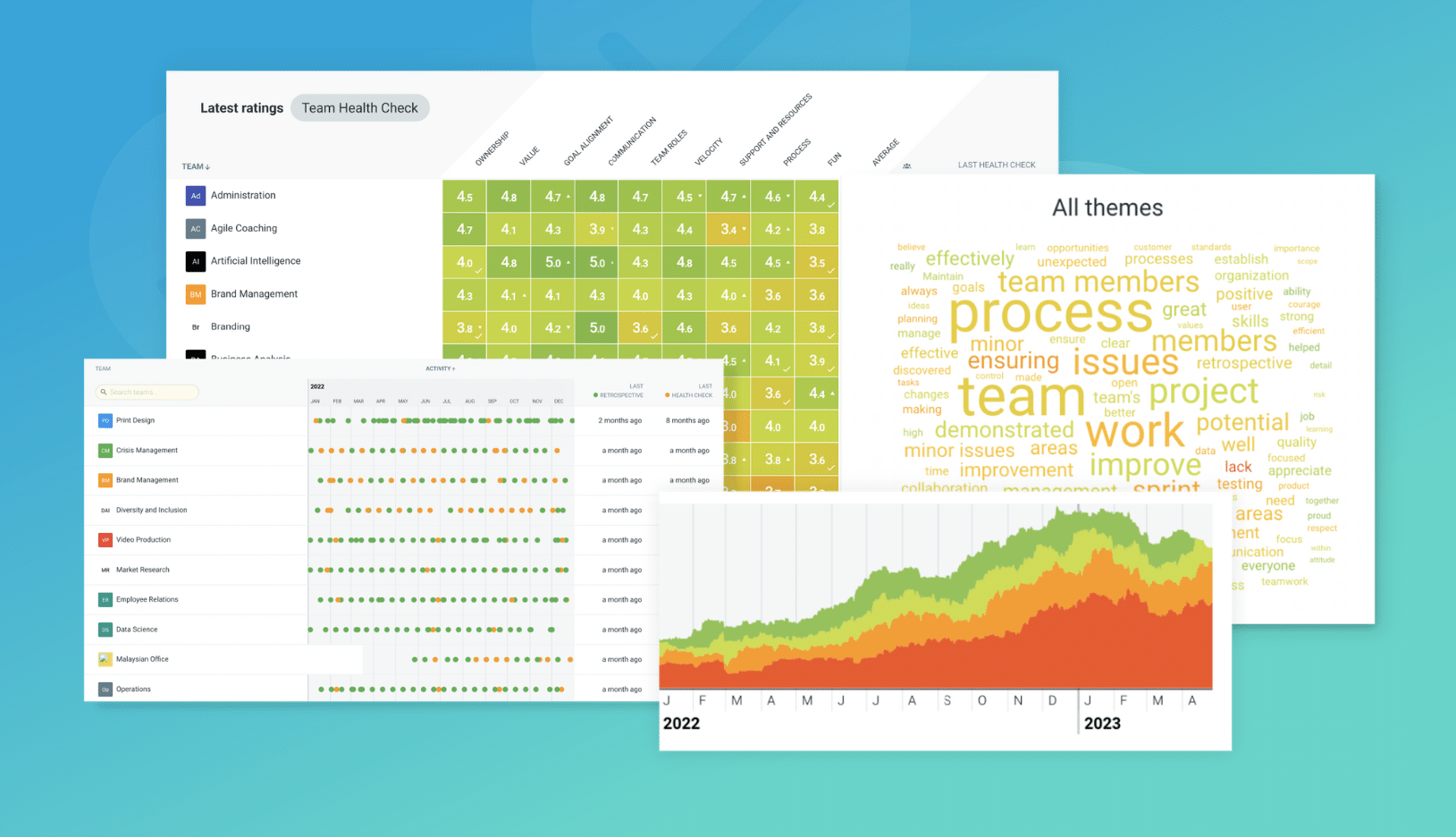The Drop Add Keep Improve (DAKI) retrospective is a simple yet powerful way to review processes, projects, or team dynamics. It prompts participants to reflect on what should be dropped (stopped), added (started), kept (continued), and improved (enhanced).
This format provides a structured approach to gather feedback and drive positive change. By focusing on these four key areas, teams can quickly identify strengths, weaknesses, and opportunities for growth.
The DAKI retrospective originated in the Lean manufacturing principles but has been widely adopted in various industries, including software development, due to its effectiveness in continuous improvement.
What is The Drop Add Keep Improve Retrospective
Drop
What practices should we stop or discontinue?
Encourage the team to be open about processes, tools, or behaviors that are no longer serving them well.
Add
What new practices should we adopt?
Encourage creativity and open-mindedness when suggesting new processes or ways of working.
Keep
What's working well that we should continue?
Reinforce the positive by highlighting processes and practices that are benefiting the team.
Improve
What could we do better?
Encourage constructive criticism and focus on actionable improvements rather than complaints.
Suggested icebreaker questions
- If our team was a vehicle, what kind would it be and why?
- What's one thing you've learned or improved on since our last retrospective?
Ideas and tips for your retrospective meeting
- Encourage open and honest feedback by creating a safe, blame-free environment.
- Use anonymous or private voting techniques if the team is hesitant to voice concerns openly.
- Prioritize the most impactful items in each category and create actionable next steps.
- Follow up on agreed improvements in subsequent retrospectives to ensure continuous progress.
- Consider rotating the facilitator role to get fresh perspectives and ensure shared responsibility.
- Set a positive tone by starting and ending with items in the 'Keep' category to reinforce what's going well.
.
How to run effective meetings with TeamRetro
Start Your Session in a Click
Log into TeamRetro and choose your template. Customise questions and the workflow to create your perfect retro for your team.
Create Your Team Easily – No Separate Accounts Needed
Brainstorm Individually – Free From Bias
Smart Grouping for Faster Insights
Fair, Flexible, and Fast Voting
Engage, React, and Capture Key Insights
Walk your team through ideas one by one with Presentation Mode. Stay in sync, spark real-time discussions, and capture feedback with comments, live reactions, and polls—all in one place.
Turn Ideas Into Action
Propose next steps with team buy-in, get AI-powered action suggestions, and keep everything in one place. Committed actions sync to your personal dashboard and integrate with your workflow tools—keeping you on track.
Save, Share, and Stay on Track
Get quick AI-powered summaries, add facilitator notes, and store retrospectives in your library for easy access. Schedule your next session and track published actions to keep your team accountable at the next retro.
Turn Team Data into Actionable Insights
Uncover trends, common themes, and key engagement metrics at a glance. Track sentiment shifts, analyze conversations, and monitor completed actions to drive continuous improvement.
